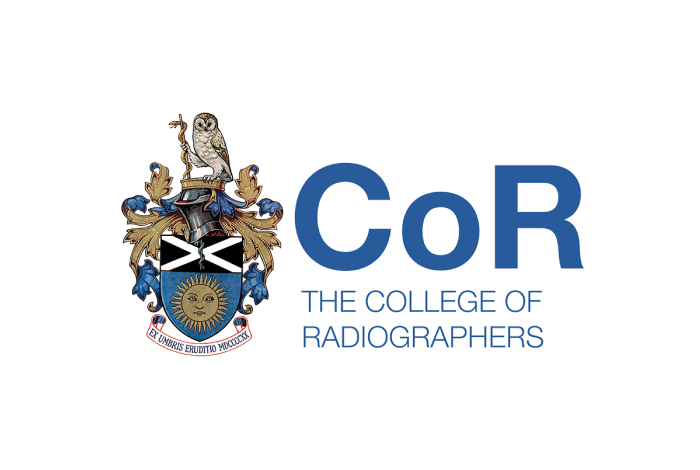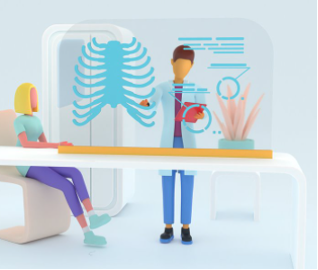In this section
In This Section
Definitions of advanced clinical practice:
National policy and framework documents provide definitions for both advanced and consultant level practice for Allied Health Professionals:
Scotland: Nursing Midwifery & Allied Health Professionals (NMAHP) Development Framework
Wales: heiw.nhs.wales/files/enhanced-advanced-and-consultant-framework/
Northern Ireland: Advanced AHP practice framework
England: multiprofessional advanced clinical practice framework and Multiprofessional consultant-level practice capability and impact framework
The most recent English framework (2017) defined advanced clinical practice as a level at which:
‘Advanced clinical practice is delivered by experienced, registered health and care practitioners. It is a level of practice characterised by a high degree of autonomy and complex decision making. This is underpinned by a master’s level award or equivalent that encompasses the four pillars of clinical practice, leadership and management, education research, with demonstration of core capabilities and area specific clinical competence.’
Regulation of title, advanced practice:
The College of Radiographers use the term advanced practice in the Education and career framework for the radiography workforce. Advanced practice is an important element of the four tier structure for clinical imaging and radiotherapy services. Currently in the UK, healthcare professionals’ use of the title ‘Advanced Clinical Practitioner’ is not protected by any regulatory body. A study commissioned by the HCPC in 2020 Service User Engagement on Standards and Advanced Practitioners found that service users (patients and public) broadly welcomed advanced clinical practitioner roles in principle although with prevailing concerns; particularly about the education and training of advanced practitioners. Service users were concerned that the title could potentially be used by an individual without any formal training. There was widespread support among the service users for regulation of the title, to ensure the establishment of standards for education and training and in order that advanced practitioners can be held to account against a higher set of standards. The HCPC are currently considering next steps and investigating the need for regulation, consulting with professionals and employers.
Advanced Practice Postgraduate Education and CPD
In the UK, Masters and Doctoral level learning related to clinical imaging, therapeutic radiography and oncology is provided via programmes of education, training and assessment at UK universities. The College of Radiographers works in partnership with clinical and academic departments, external organisations and individuals to provide assurance that those programmes of education and training attain, maintain, and continue to develop the highest standards of clinical imaging and oncology practice and conduct. A directory of post-registration education approved by the College of Radiographers is available via the following link, please click on each University name for further details of programmes: Directory of post-registration courses | CoR (collegeofradiographers.ac.uk)
With respect to continuing professional development (CPD) and lifelong learning, in addition to requirements of our regulator health and care professions council (HCPC), healthcare professionals working at the level of advancing practice are supported by information in the following publications:
principles_of_cpd_and_lifelong_learning_2019.pdf_2 (sor.org)
Post-reg framework | Career Framework (scot.nhs.uk)
Advancing Practice: Signpost to CPD
AHP-Framework.pdf (health-ni.gov.uk)
Practicing appropriate delegation - HEIW (nhs.wales)
Imaging Academies
The UK devolved nations have a range of funding models for healthcare professional education. HEE are in the process of developing imaging academies across England.Imaging academies are intended to support clinical imaging professionals in terms of continuing professional development, work-based learning and support, which may include online resources and sessions. This is not accredited education provided by academies in the respect that universities / higher education institutes will continue to provide and assess Masters and Doctoral level learning, to be complemented by the academy work based learning and education. It is intended that the academies will support staff with postgraduate enhanced, advanced and consultant level practice across a range of areas including but not exclusively clinical reporting.
Accreditation of advanced practitioners:

Since 2010, the College of Radiographers (CoR) have offered members of the Society of Radiographers (SoR) the choice to undertake a scheme of voluntary accreditation of their advanced practice CoR advanced practitioner accreditation . CoR Board of Trustees require applicants to demonstrate that they meet an advanced level of practice across the domains of expert clinical practice; leadership and management; education and training; and research (including audit and service evaluation). These four pillars, or domains of practice, are reflected in advanced practice documentation across the devolved nations of the UK. The UK frameworks and standards for advanced practice use various different terms but are all remarkably similar, offering a level of reassurance of understanding and requirements at this level. Accreditation is therefore, in the absence of mandatory regulation, a method to offer reassurance for fellow staff, patients and employers of an individual’s attainment of a level of practice beyond initial registration with the Health and Care Professions Council (HCPC).
Health Education England (HEE) Centre for Advancing Practice and Advancing Practice Regional Faculties
Health Education England Centre for Advancing Practice website is a dedicated online presence where advanced practitioners, employers, educators and beyond can find the information they need about the centre's work and processes.
Building a recognised and visible advanced practitioner workforce is a priority for the NHS - there is a clear and identified need for highly experienced clinicians who are trained to an advanced level of practice.
Health Education England established the centre to oversee the workforce transformation of advanced level practice, by establishing and monitoring standards for education and training, accrediting advanced level programmes, supporting and recognising practitioners, and growing and embedding the advanced and consultant practice workforce.
The centre aims to deliver this through five key functions:
- Programme accreditation
- Practitioner recognition
- Advanced Practice Directory
- HEE credentials
- Workforce solutions
Seven regional Faculties for Advancing Practice have also been established to drive pioneering workforce transformation for advanced practice across England, to develop modern pathways of care, improve patient safety.
The faculties will work across their local systems to identify workforce demand, commission high-quality education and training, optimise clinical training, supervision and assessment and support communities of practice to drive ongoing development and support to improve patient care.
To find out more about your regional faculty in England visit the Advanced Practice website.
Scope of advanced practice, clinical imaging and radiotherapy
The Scope of Practice 2013 (sor.org)
Extract taken from SoR Scope of practice 2013
3. Defining individual scope of practice
3.1 Within the roles and sectors described in the scope of practice document (link provided above), a member of the professional workforce can develop his or her own scope of practice as he or she determines, provided that he or she is adequately educated and trained and competent to practice. He or she must work ethically and in accordance with the SCoR Code of Conduct and Ethics.8
3.2 In identifying and communicating their individual scope of practice, they must consider the roles and environments in which they work and ensure that they are educated and competent to operate in their specific roles.
3.3 In making decisions about what is included in their individual scope of practice, they must: work within the advice and guidance given in the HCPC’s Code of Conduct and Ethics9 and within current legal and ethical frameworks; seek authorisation/IR(ME)R entitlement from the employing authority or, if practising independently and self-employed, establish and work within appropriate governance procedures;16,2 put the interests of the patient first8,17,18 at all times, including acting as an advocate;19 develop and maintain competence to practice through continuing professional development;20,21 recognise deficiencies in knowledge, skills and competency and take appropriate action;be personally and professionally accountable for all actions, omissions and behaviour; avoid inappropriate delegation;22 monitor and evidence the quality of practice.
3.4 An individual’s scope of practice develops over time. This requires the individual to manage this process to ensure that their knowledge and skills are appropriate to the changes. Developments in individuals’ scope of practice need to be reflective of best practice and enhancing patient care.
Please see the full document for further information and context.

Advanced practitioners pay banding
The NHS Agenda for Change pay spine places advanced practitioners in Bands 7 and 8, depending upon the exact nature of the role and subject to its evaluation against advanced practitioner profiles. It is the actual job role that defines the banding, not the use of the title advanced practitioner.
Workplace Supervision
HEE Centre for Advancing Practice have a guide with respect to Workplace Supervision for Advanced Clinical Practice: An integrated multi-professional approach for practitioner development The publication sets out seven fundamental considerations which underpin supervision in advanced clinical practice: Practice Context, Competence and Capability, Multiple professional Registrations, Individual Learning Plan, Professional Development and Transition, Integrated Approach and Supervisor Development.
There are a series of online videos which accompany the guide: Workplace Supervision for Advanced Clinical Practice - supporting videos - Advanced Practice (hee.nhs.uk)
Healthcare Apprenticeships - Skills for Health advanced clinical practitioner (degree) information pack 2021.11.18 PF Standard pack - Advanced Clinical Practitioner (skillsforhealth.org.uk)
